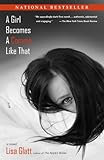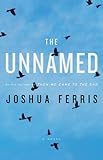For about a year, the books in our apartment threatened to swallow my husband and me. Adding another bookcase, like adding another lane to an already clogged freeway, didn’t help–it only encouraged us to read more, and the piles kept growing. During the holidays, it got so bad that those stored on top of a shelf in the living room covered most of the framed French Connection poster on the wall above it; they even threatened to push the lamp off the edge. The books on top of the small shelf in the bedroom nearly blocked the light switch; soon we would either have to paw through the dark, or sleep with the lights on. Something had to be done.
Although I agreed with Patrick that we needed more space, I was resistant to a book purge. For one, I like books-as-interior-decoration. Their uniformity of shape contrasts well with their variation in color (unless, you’re one of these rubes who stores their books spine-in), and bookends are so elegant (I cherish my brass dogs from Restoration Hardware.) Plus, every few weeks I can avoid writing by rearranging and dusting the piles of novels scattered in each room. Why write my own when I have all of these published ones to keep me company?

 I also felt strongly that our books revealed to visitors our values and our identities; the fact that we were swimming in them emphasized their importance in our lives. The first thing I look at when I walk into someone’s home is their bookshelf. That is, if they’ve got any–lord help me. On his goodreads profile, my friend Brian writes, “If you go home with someone, and they don’t have any books, don’t fuck ’em!” This has always struck me as wise advice for the literary bachelor or bachelorette, and I’d like to extend it further, away from the romantic and sexual: if you don’t read, I don’t want to be your friend…I don’t even want you to serve me a drink at a bar. If a stranger came over to our apartment, and there weren’t books, or–oh no!–not enough books, what would that say about me and Patrick? If my copy of Handmaid’s Tale or his copy of The Power Broker weren’t on display, how would anyone understand us? Some people have a cross in their home, or a mezuzah on their doorjamb. I’ve got nine books by Vladimir Nabokov.
I also felt strongly that our books revealed to visitors our values and our identities; the fact that we were swimming in them emphasized their importance in our lives. The first thing I look at when I walk into someone’s home is their bookshelf. That is, if they’ve got any–lord help me. On his goodreads profile, my friend Brian writes, “If you go home with someone, and they don’t have any books, don’t fuck ’em!” This has always struck me as wise advice for the literary bachelor or bachelorette, and I’d like to extend it further, away from the romantic and sexual: if you don’t read, I don’t want to be your friend…I don’t even want you to serve me a drink at a bar. If a stranger came over to our apartment, and there weren’t books, or–oh no!–not enough books, what would that say about me and Patrick? If my copy of Handmaid’s Tale or his copy of The Power Broker weren’t on display, how would anyone understand us? Some people have a cross in their home, or a mezuzah on their doorjamb. I’ve got nine books by Vladimir Nabokov.
Right before Christmas, my father came over for dinner and with a sneer told us we should get rid of our library. “You’re not actually going to re-read these, are you?” he asked. It should come as no surprise that he isn’t a reader (I wish I could say, “If you don’t read, I don’t want to be your daughter”…but, alas, I have no choice in the matter.) Patrick thought my dad had a point; a lot of these books were just sitting on the shelves, untouched. We should try to get rid of half of our books, he said after my father left. “But I need them for teaching!” I cried. I teach classes from home, and I love to allude to a book during workshop, and then, in the next moment, hand it to the student. “You’re not a librarian,” Patrick replied, that witty asshole.
 So, one Sunday, we began. My first idea was that we would do each other’s dirty work. I would purge the books that belonged to Patrick, and he would purge mine. Nothing would leave the apartment without the other’s consent, but it was a good way to be objective about the matter. Patrick had no idea how much I’d enjoyed A Girl Becomes a Comma Like That, so it clearly couldn’t mean all that much to me. That stung–but he was right, and into the exit line it went.
So, one Sunday, we began. My first idea was that we would do each other’s dirty work. I would purge the books that belonged to Patrick, and he would purge mine. Nothing would leave the apartment without the other’s consent, but it was a good way to be objective about the matter. Patrick had no idea how much I’d enjoyed A Girl Becomes a Comma Like That, so it clearly couldn’t mean all that much to me. That stung–but he was right, and into the exit line it went.
It wasn’t long before we began purging our own books, voluntarily. We were even a little frenzied. It was liberating, for instance, to finally give away Fortress of Solitude, which I must now publicly admit, I didn’t like as much as everyone else did. It felt okay to pull my copy of Tom Jones from the shelf; if someone wanted to assume I hadn’t read it, let them. Only I held the history of my reading past, of the semesters of college courses I diligently attended, reading everything (everything!) on the syllabus, taking sometimes useful, but more often ineffectual, notes in the margins. I didn’t need the books themselves to remember my reader-selves of yesteryear.
The pile of books to be purged grew larger and larger, covering the kitchen table, and the four chairs as well. The shelves were thinning out. I began to get a little spiritual about things. I liked the idea of passing on all these stories to new readers. Let them live on! I was in the service of humanity now!
Of course, we didn’t get rid of everything (sorry, humanity). Our favorites remained. Not only were Margaret Atwood and Robert Caro safe, so were Alice Munro, Joan Didion, Sam Lipsyte, James Joyce, and Anne Carson… and these were just a few of the authors who survived. Patrick and I had fun rearranging our two “favorites” shelves, one for long-beloved books, and one for newer books that had recently captured our imagination and hearts. We created a shelf specifically for authors we knew personally, from Kiki Petrosino to John Haskell; next time someone takes a gander at the collection, I am totally going to brag. We also migrated most of our poetry from the front of the apartment to the bedroom. (Upon moving in, we thought we might want to pull out a collection during a dinner party, to enliven it with a verse or two, but that never happened. Now, it seems more romantic and delicious to sleep and dream next to poems, rather than eat and surf the web next to them.)

 Our best change is “The Unread” (either a book section or the latest horror flick, coming to a theatre near you). I am happy to say, it’s only a short pile, and it’s in no danger of blocking that movie poster. This pile is easy to access, and usefully recriminating; it’s difficult to defend a new book purchase when we have all of these waiting for us. Since the purge, I have already read one of these books (Arlington Park by Rachel Cusk) , and I’m halfway through another (The Unnamed by Joshua Ferris).
Our best change is “The Unread” (either a book section or the latest horror flick, coming to a theatre near you). I am happy to say, it’s only a short pile, and it’s in no danger of blocking that movie poster. This pile is easy to access, and usefully recriminating; it’s difficult to defend a new book purchase when we have all of these waiting for us. Since the purge, I have already read one of these books (Arlington Park by Rachel Cusk) , and I’m halfway through another (The Unnamed by Joshua Ferris).
It’s been a little over a week since we’ve cleaned out and rearranged our bookshelves. To my surprise, I don’t grieve the change. Three people have commented on how clean the place looks, and not one has noticed the lack of books. It’s like a flattering new haircut that no one sees–they just think you look great.
So where, you ask, did we send all of our unwanted books? Someone else might have tried to sell them online, or at a used bookstore, or scheduled appointments with literary-minded friends (the only kind worth having, as I’ve previously established). But we weren’t so prepared: we loaded them into garbage bags and dropped them off at our local Goodwill on Hollywood Blvd. If you head over there soon, you will certainly find some gems.








